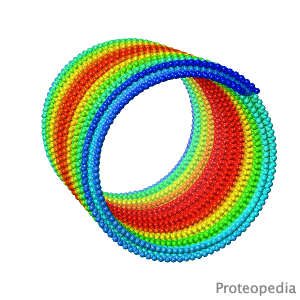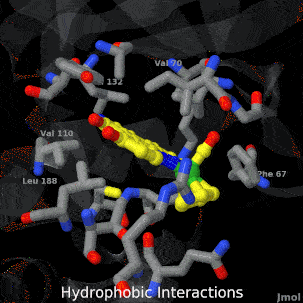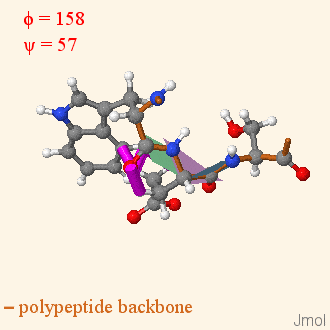Main Page
From Proteopedia
| (26 intermediate revisions not shown.) | |||
| Line 8: | Line 8: | ||
<span style="border:none; margin:0; padding:0.3em; color:#000; font-style: italic; font-size: 1.1em;max-width:80%;display:block;"> | <span style="border:none; margin:0; padding:0.3em; color:#000; font-style: italic; font-size: 1.1em;max-width:80%;display:block;"> | ||
| - | + | <b>Proteopedia</b> presents this information in a user-friendly way as a '''collaborative & free 3D-encyclopedia of proteins & other biomolecules.''' | |
</span> | </span> | ||
| Line 15: | Line 15: | ||
<tr> | <tr> | ||
| - | <th style="padding: 10px;background-color: #33ff7b">Selected Pages</th> | + | <th style="padding: 10px;background-color: #33ff7b">Selected Research Pages</th> |
| - | <th style="padding: 10px;background-color: #f1b840">Journals</th> | + | <th style="padding: 10px;background-color: #f1b840">In Journals</th> |
<th style="padding: 10px;background-color: #79baff">Education</th> | <th style="padding: 10px;background-color: #79baff">Education</th> | ||
</tr> | </tr> | ||
| - | <tr> | + | <tr valign='top'> |
<td style="padding: 5px;"> {{Proteopedia:Featured SEL/{{#expr: {{#time:U}} mod {{Proteopedia:Number of SEL articles}}}}}}</td> | <td style="padding: 5px;"> {{Proteopedia:Featured SEL/{{#expr: {{#time:U}} mod {{Proteopedia:Number of SEL articles}}}}}}</td> | ||
<td style="padding: 5px;"> {{Proteopedia:Featured JRN/{{#expr: {{#time:U}} mod {{Proteopedia:Number of JRN articles}}}}}}</td> | <td style="padding: 5px;"> {{Proteopedia:Featured JRN/{{#expr: {{#time:U}} mod {{Proteopedia:Number of JRN articles}}}}}}</td> | ||
| Line 60: | Line 60: | ||
<td>[[Proteopedia:About|About]]</td> | <td>[[Proteopedia:About|About]]</td> | ||
<td>[[Special:Contact|Contact]]</td> | <td>[[Special:Contact|Contact]]</td> | ||
| + | <td>[[Template:MainPageNews|Hot News]]</td> | ||
<td>[[Proteopedia:Table of Contents|Table of Contents]]</td> | <td>[[Proteopedia:Table of Contents|Table of Contents]]</td> | ||
<td>[[Proteopedia:Structure Index|Structure Index]]</td> | <td>[[Proteopedia:Structure Index|Structure Index]]</td> | ||
Current revision
|
ISSN 2310-6301
As life is more than 2D, Proteopedia helps to bridge the gap between 3D structure & function of biomacromolecules Proteopedia presents this information in a user-friendly way as a collaborative & free 3D-encyclopedia of proteins & other biomolecules.
| ||||||||
| Selected Research Pages | In Journals | Education | ||||||
|---|---|---|---|---|---|---|---|---|
|
|
|
||||||
|
How to add content to Proteopedia Who knows ... |
Teaching strategies using Proteopedia |
|||||||
| ||||||||




